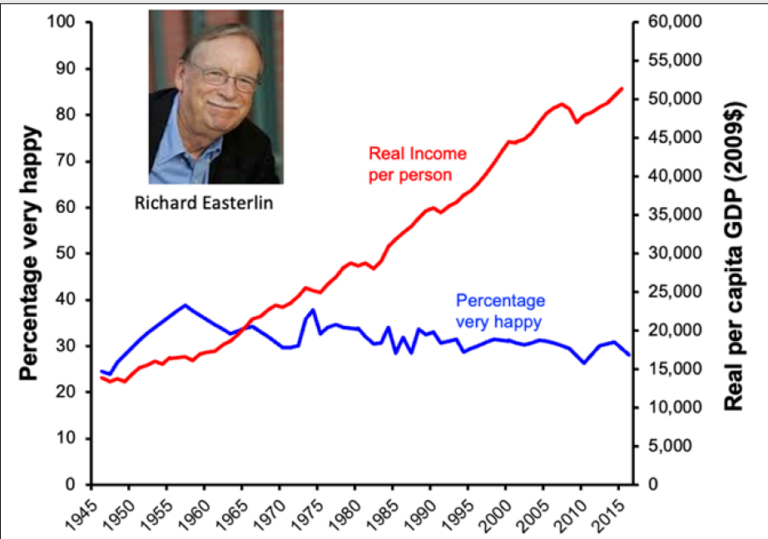
“탈 탄소 경제, 방법은 있다”
생태경제학자 빅터 욕 대학교수
생태 경제학이란 분야가 주목받고 있다. 전통적인 경제학과 결을 달리 한다. 기존의 경제 이론에 따른 세계 경제가 탄소를 지나치게 배출함으로 제 6의 대멸종으로 가는 길을 열고 있기 때문에 이에 대한 반성과 생존을 위한 대안을 고민하며 세워나가는 경제 이론이다.
이 분야의 저명 학자로는 토론토 욕대학의 피터 빅터(Peter Victor) 명예교수다. 캐나다의 생태경제 학자라니. 게다가 우리의 생활권에서 활동하는 분이어서 관심이 더했다. 그는 대학 교수이면서 170년이란 긴 역사를 갖고 있는 캐나다 왕립과학연구소 회장을 지냈고 온주 환경과학 및 표준 부서 차관보에다 욕 대학 환경학부 학장, 캐나다 생태경제학회 창립회장 등을 역임한 대가였다.
지난해 발간된 그의 책 용량초과로부터의 탈출(Escape from Overshoot)은 탄소경제로 이뤄진 자본주의에 대한 깊은 연구와 그 종말이 가져올 위험, 그리고 대안을 제시하고 있다.
그는 서문에서 ‘우리가 오늘날 겪는 도전은 엄청나게 다르다. 인류가 고된 노동에서 탈출하게 됐지만 그 결과 엄청난 기후변화를 초래했다. 가난으로부터 탈출하기 위해 다른 사람들의 가난을 초래했다. 우리의 생물학적 부족함에서 탈출하기 위해 다른 종의 멸종을 불러왔다. 우리는 지루함으로부터 탈출하기 위해 복잡한 기술확장을 남용함으로 인간성을 위협하게 됐다. 오늘날 우리는 우리 스스로가 지구와 자신들에게 끼친 피해로부터 탈출구를 만들어야 한다.’ 고 지적했다.
생태 경제학은 지난 200여년 인류를 지배해 온 산업자본주의, 혹은 탄소 자본주의 경제의 한계를 지적하는 데서 시작한다. 탄소 자본주의는 기계와 자본, 자원, 노동력 등을 가장 효율적으로 투입해 최고의 물건을 만들어 냈다. 최소 비용을 투자해 최대 효과를 거두는 것이 선이었고 기술진보와 인력의 고급화를 통해 생산성은 날이 다르게 높아졌다. 그러나 생태적 부담으로 지구는 이런 인류의 진보에 위험신호를 보내게 됐고 경제학자가 아닌 기후학자들이 그에 대한 경고를 쏟아내고 있다. 이제 경제학자들이 답해야 할 때다. 기존의 경제학자들은 이에 대한 답을 찾을 생각을 하지 않고 있는 것 같다. 과학자들이 제기하는 문제의 심각성을 인지하지 못하거나 무시하고 있는 것이다. 대신 탄소 자본주의 경제에 대해 위험성과 한계를 지적하는 여러 대안 경제학자들이 다양한 대안들을 제시하고 있다. 앞서 언급한 빅터 박사 외에 여러 생태경제학자들의 연구와 논문, 일반 교양서 등이 시중에 쏟아지고 있다. 다만 각국 경제정책 기조를 바꿀 만큼 큰 힘을 발휘하지 못하는 것이 현실이다. 실제 현실에서 시도돼 보지 않은 경제이론이 과연 인류를 더 행복하게 살 수 있게 해줄 수 있을까? 아니, 더 행복하지는 않더라도 그 이론과 전망대로 지구 환경에 피해를 최소화 하면서 더 오래 생존해 나갈 수 있도록 해 줄 수 있을까? 답은 쉽지 않다.
‘기후를 위한 경제학’이라는 책을 저술한 김병권 씨는 최근 그의 페이스북에서 “현재 기후운동 일부에서 활발하게 얘기되는 탈성장, 탈자본주의의 결정적인 맹점은 ‘안티테제’는 있는데 ‘긍정테제’가 없다는 것이다. 성장을 벗어나서, 자본주의를 벗어나서 그다음에 뭘 어떻게 하자고? 가 없는 것이다.”라고 지적했다. 기존 경제에 대한 비판은 있지만 대안이 부족하다는 뜻이다.
이에 대해 빅터 교수는 ‘지금처럼 고성장, 혹은 탄소경제에 의한 자원착취로 만들어낸 성장은 곧 심각하게 인류와 지구 전체에 고통을 안겨주게 될 것’이라며 ‘저성장, 혹은 녹색성장 등으로 체질개선을 하며 더 나은 삶을 인류와 지구에게 안겨줘야 한다’고 그의 책 ‘용량초과로부터의 탈출’에서 강조하고 있다. 이를 위해 여러 경제 모델을 사용하여 지속가능한 경제 유지, 혹은 낮은 녹색 성장이 가져올 웰빙의 정도는 오히려 지금의 대량생산 대량소비 모델이 가져다 주는 위험과 비교할 수 없을 것이라 강조했다. 답이 없는 것이 아니라 가보지 않은 길에 대한 두려움으로 선택하지 않는 것이 문제라는 것이다.
생태경제학 분야에서 노벨상이 나와야 각국의 경제 정책이 조금은 움직이지 않을까 생각해 본다.
“A decarbonized economy, there is a way”
Prof. Victor’s Book, Escape from Overshoot.
The field of ecological economics is gaining traction. It is different from traditional economics. It is an economic theory that is built by reflecting on the fact that the global economy according to conventional economic theory is emitting too much carbon, opening the way to the sixth great extinction, and considering alternatives for survival.
A prominent scholar in this field is Peter Victor, professor emeritus at York University in Toronto. A Canadian ecological economist. Victor is a university professor, former elected member of the 170 years old Royal Society of Canada, Assistant Deputy Minister of the Environmental Sciences and Standards Division in the Ontario Ministry of the Environment, dean of the School of Environmental Studies at York University, and founding president of the Canadian Ecological Economics Society.
His book Escape from Overshoot, published last year, is an in-depth study of capitalism in a carbon economy, the dangers of its demise, and the alternatives.
As he writes in the foreword, “The challenge we face today is vastly different. Humanity has escaped from hard labor, but at the cost of massive climate change. To escape poverty, we have caused the poverty of others. To escape our biological inadequacies, we have caused the extinction of other species. To escape our boredom, we threatened our humanity by abusing complex technological expansion. Today, we must create our own way out of the damage we have done to the planet and ourselves.
Ecological economics begins by pointing out the limitations of the industrial capitalist, or carbon capitalist, economy that has dominated humanity for the past 200 years. Carbon capitalism makes the most efficient use of machines, capital, resources, and labour to produce the best goods. The goal was to get the most for the least, and technological advancements and the sophistication of the workforce have led to ever-increasing productivity. But the ecological strain on the planet is sending up red flags, and climatologists, not economists, are sounding the alarm. It’s time for economists to answer. Conventional economists don’t seem to have the answers. They either don’t recognize or ignore the seriousness of the issues raised by scientists. Instead, there are a number of alternative economists who point out the dangers and limitations of a carbon capitalist economy. In addition to Dr. Victor, there are a number of other ecological economists whose research, articles, and popular books are available on the market. However, they are not powerful enough to change the course of economic policy. Can an untested economic theory really make humanity happier? Or, if not happier, can their theories and projections allow us to survive longer with minimal damage to the planet? The answer is not easy.
“The crucial blind spot of the post-growth, post-capitalist movement that is currently being talked about in some quarters of the climate movement is that it has an ‘antithesis’ but no ‘affirmative thesis’. There is an ‘antithesis’ but not an ‘affirmative thesis’.” This means that while there is criticism of the existing economy, there is a lack of alternatives.
In his book, Escape from Overcapacity, Professor Victor emphasizes that “high growth, or growth generated by the exploitation of resources by the carbon economy, will soon cause serious human and planetary suffering,” and that “we need to change to low growth, or green growth, and give people and the planet a better life. Using several economic models, he argues that the well-being gains of a sustainable economy or low green growth would be incomparable to the risks of our current model of mass production and mass consumption. It’s not that there are no answers, it’s that we don’t choose them for fear of the road less travelled.
I wonder if a Nobel Prize in ecological economics would move countries’ economic policies a bit.
